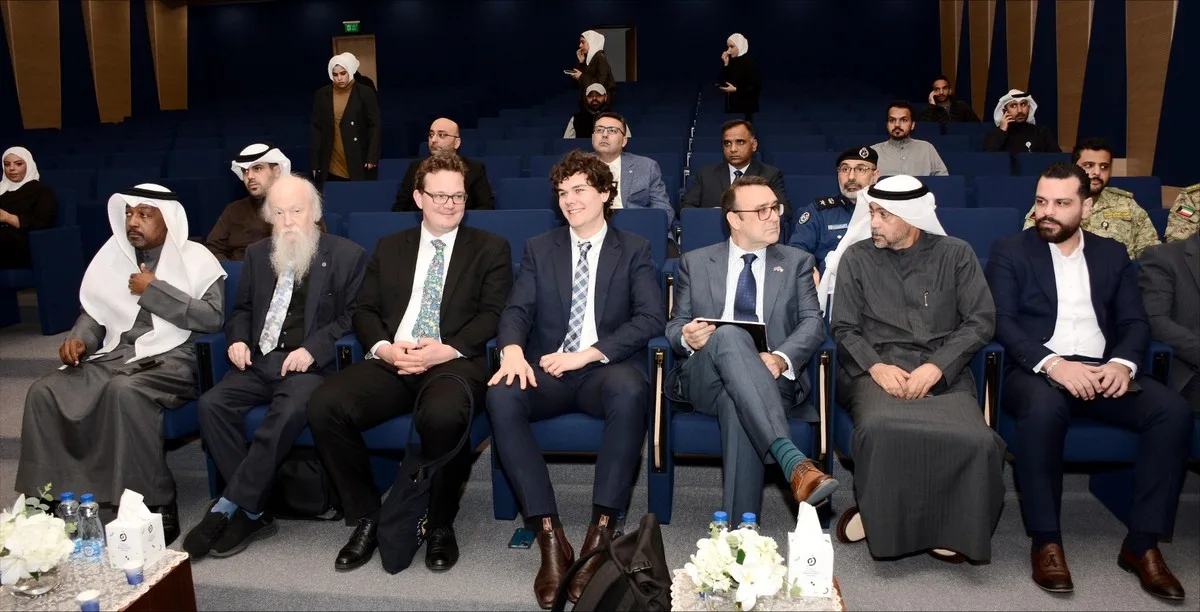27/01/2025
27/01/2025

KUWAIT CITY, Jan 27: Abdullah Al-Salem University hosted a program on Monday that included discussion panels to assess the maturity level in the field of cybersecurity. The event was organized in collaboration with the National Cybersecurity Center and Oxford University.
The opening speech was delivered by Dr. Sorour Al-Otaibi, the university's Vice President for Scientific Research and Graduate Studies. He described the panels, which will continue until January 29, as a "pivotal step" in understanding the maturity level of institutions by applying global standards. These standards aim to improve and protect the digital infrastructure, aligning with the Comprehensive Measurement Model (CMM) implemented by Oxford University experts.
Dr. Al-Otaibi explained that the CMM is designed to help countries and institutions identify their strengths and weaknesses, analyze gaps, and submit a final report with recommendations for improving the cyber performance process. He emphasized that this initiative is the result of successful cooperation between the governments of Kuwait and the United Kingdom, reflecting the deep ties and commitment to collaboration across various sectors, benefiting both nations.
He further highlighted that the discussion panels offer an opportunity to explore current challenges and innovative solutions through the exchange of expertise among academics and cybersecurity experts. He stressed that these panels are an important starting point toward building a robust and sustainable cybersecurity system, which will contribute to achieving Kuwait’s future vision.
In her speech, Ghalia Al-Salahi, a representative of the National Cybersecurity Center, explained that the initiative aligns with the center’s goal of enhancing cybersecurity in Kuwait. She emphasized the importance of exchanging expertise, applying global best practices, and fostering strategic partnerships between the government, private sector, and public benefit associations.
Al-Salahi noted that cybersecurity has become "a basic necessity" to protect digital infrastructure and ensure the sustainability of digital transformation in all sectors. She also underlined the center's efforts to serve as a platform for unifying national efforts and strengthening cooperation with leading international institutions, such as Oxford University, which has extensive expertise in cybersecurity.
She stressed the importance of the discussion panels in providing a valuable platform to exchange ideas, identify challenges, and explore strengths facing Kuwait’s cybersecurity landscape. She expressed hope that the discussions would lead to the development of policies and strategies that enhance national cybersecurity.
Michael Smith, representing Oxford University, also spoke about the significance of these specialized discussion sessions in the field of cybersecurity, particularly in today's fast-evolving digital landscape. He emphasized the need for knowledge exchange and practical training to maintain and improve levels of cyber maturity. Smith highlighted that interaction and the sharing of experiences are essential for advancing education and training in cybersecurity, calling on all participants to actively contribute to developing their skills to achieve the best outcomes for their societies.
The program’s opening at Abdullah Al-Salem University was attended by Stuart Summers, Deputy Ambassador of the United Kingdom to Kuwait and Deputy Head of Mission, as well as representatives from various governmental and private entities.


